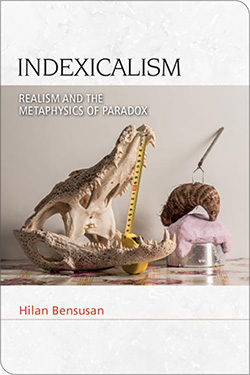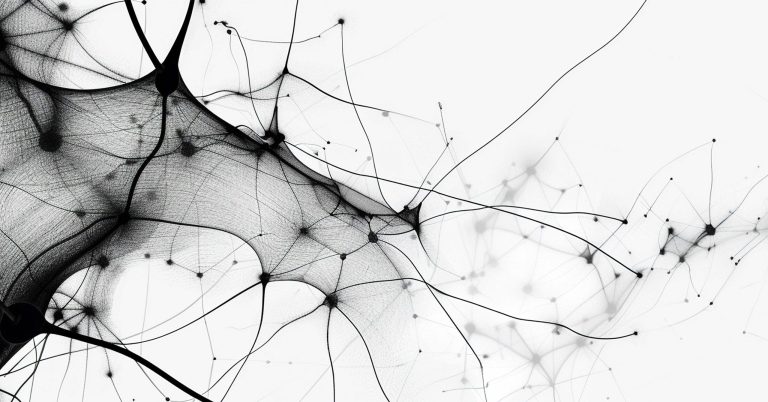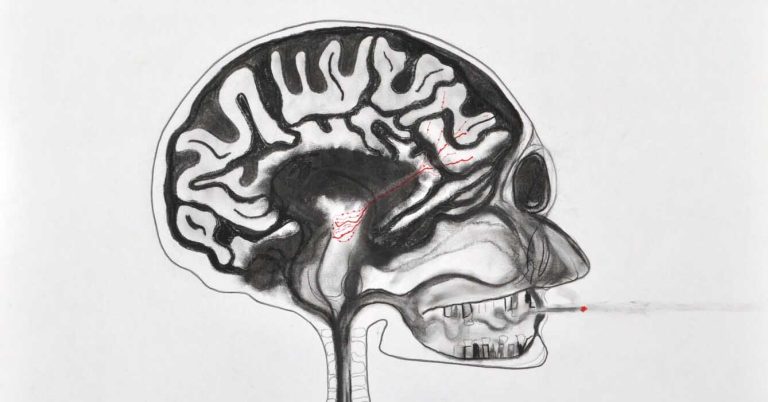
Graham Harman and Hilan Bensusan
Have you read Part 1? See it here!
Graham Harman: As for Levinas, I enjoy your treatment of his notion of otherness. But I couldn’t help noticing that in your new book you don’t really engage with Derrida’s classic critique of Levinas in “Violence and Metaphysics,” even though you obviously have a high regard for Derrida.[i] How would you explain this gap in your book?
Hilan Bensusan: Steven Shaviro made an interesting remark in his paper in the book symposium launching Indexicalism. He portrays “Violence and metaphysics” as saying that Levinas cannot say, in philosophy, what he attempted to say. This is why Derrida puts so much effort into separating the Greek heirs Husserl and Heidegger from Levinas, who appears as a stranger who speaks the language of philosophy with an accent. Shaviro notices that Derrida eventually found out that there is something about stretching the language to say what it cannot say. Indeed, Levinas himself was aware of these limitations, if we think his point of departure was close to that of Franz Rosenzweig, who thought he could not express what was personally relevant within the limits of philosophy and took this as a reason to stay away from it.[ii] Levinas’ venture into philosophy is not a tranquil one: he knows he risks paradoxes and other impossibilities throughout his journey. Still, he thinks it is worth stretching the capacities of philosophy to make room for the ability to sanctity: for the impact of responsibility in the quest for truth, and for a notion of justice that cannot be grounded in one’s freedom.
I take Derrida to have been very much under the influence of Levinas. even though their dialogue is more apparent at some times than others. Ideas such as that of the “trace” as opposed to full presence, of a past that has never been present, of an aporetic justice that is urgent and not subject to deconstruction, are key points that reflect that influence. This influence was mutual and ongoing, and there is a lot of what Derrida published in the late 1960s present in Levinas’ 1974 book Otherwise Than Being.[iii] The distinction between the ‘saying’ and the ‘said,’ and the thesis that the former cannot be reduced to the latter –which are the opening gestures of Levinas in the book–arguably constitute a framework through which the efforts of deconstruction can be understood. Simon Critchley, Jalal Badleh, Gérard Bensussan, Fernanda Bernardo and Gabriela Lafetá, who also attended the book symposium, (among others) have shown that it is very difficult to understand Derrida if his thought is not considered as a conversation with Levinas. This conversation had many moments, and “Violence and metaphysics” –a text from the mid-1960s– is one of them. As far as I know, it is not a text with which Levinas engaged very much. It remains an interesting appreciation, of the friction between Levinas and Husserl, but is by no means the last word in their interaction.

In Indexicalism I refer directly to Derrida at several points. In one of them I consider Derrida’s last seminar, The Beast and the Sovereign, where the poem “Snake” by D. H. Lawrence is introduced in a discussion of Levinas’ connection between the other and the face.[iv] Derrida never attached that much importance to the face; likewise, I don’t engage with the notion in my attempt to expand on Levinas’ approach to otherness in the book. Whereas Silvia Benso tries to extend Levinas’ approach to the other beyond the human by bridging Levinas and Heidegger’s remarks on the thing through the notion of the face (and presentation, appearance, unveiling, etc.), I introduced otherness in the context of perception, where faces are not a dominant element.[v] Rather, I picture perception as a place where responsibilities can appear from any other place; in perception, our accounts of things are always hostage to something that is added and that can destabilize them. Perception entails a host of interruptions. This addition that the senses provide is an opening to the others, and can be understood in terms of what Derrida calls the logic of the supplement. The supplement is neither mere completion nor continuity; rather, it renders insufficent that which previously seemed to be complete. The non-monotonicity of perception makes it an encounter with the others, and although this commands responsibility, perception is hardly limited to responding to faces.
Graham Harman: There’s another question about Levinas that I want to ask. He is most famous as a philosopher of infinite otherness or “alterity”. You too are interested in this problem, since “the metaphysics of the others” is one of your key concepts. Yet there is another side of Levinas, in some respects the opposite one, which has to do with the sheer enjoyment of the surface of the world, which he terms the “hither side” of being. This second Levinas of enjoyment is not really the Levinas on whom you focus, but I wonder if there is anything worth taking from him.
Hilan Bensusan: Tom Sparrow, in the essays collected in Levinas Unhinged, explores some unusual sides of Levinas’ writings and shows how much there is to be explored there.[vi] I find Levinas’ early book On Escape (De l’évasion) a very interesting source to think about desire, seduction and the haunting of what is outside of being on us.[vii] Further, he addresses there his misgivings with Bergson and, from my perspective, makes clear a connection with Deleuze’s (and Guattari’s) notion of the line of fugue – especially in A Thousand Plateaus.[viii] That urge to escape, together with the impact of the others in my proximity over my thinking and acting, offers an image of horror and repulsion towards being that is crucial in the drive away from one’s own existence. Being is not insufficient because it is finite or limited, but precisely because it is what it is; there is boredom towards the sameness of existence that triggers a curiosity and an opening to what is otherwise.
Yet I don’t think these two sides of Levinas are utterly disconnected. I find it tempting to relate Levinas’ picture of an unsatisfying existence seduced by what is outside and haunted by the Other with the philosophical project of Fabián Ludueña (in his five-volume La Comunidad de los Espectros).[ix] Levinas takes the metaphysical desire, in the terms he uses in Totality and Infinity, to be driven by an attraction towards the Other. The metaphysical desire cannot be quenched by an ontology that will simply provide more being, or more reduction of what is other to the same, as he states at the beginning of the book. The metaphysical desire is what drives one away from (her own) being and towards an unknown that is somehow sensed in one’s skin. Ludueña’s speculative disjunctology pictures two poles, one of less than fully present bodies and another of images and specters that haunt them as desires do. This shows that the insufficiency of the body is not enough either to dismiss it or to dismiss anything else. The two poles –in some sense equivalent to the sensible and the intelligible– are in constant connection with each other, separate but not fully independent. Analogously, I am separated from the Other in Levinas but also hostage to her traces. There is no symmetrical relation and no full-blown commerce, as in Ludueña’s two poles where the bodies crave images and are haunted by specters.
The phenomenology of substitution, the experience of being another, is something complex and terrifying where proximity, evasion and otherness are brought together. Levinas understood the somber side of sanctity. Even though Indexicalism doesn’t dwell on the agonies of this phenomenology, it hints at the issue by bringing paradox to center stage. Much of that phenomenology has to do with interruption and the subsequent paradox of freedom that ends up discovering responsibility and canceling freedo – but this is a paradox that is lived through. As a consequence, sensibility is engaged in the demands of the Other and proximity is constitutive of the very space where enjoyment is possible. Indexicalism, with its rejection of the neutral substantive ‘human’ as a way of predicating the Other, takes this relation between fruition and interruption further as they intertwine in paradoxical ways –like freedom and responsibility– and thoroughly situated.
Read on…
Part 3 can be read here!
Get your copy of Indexicalism here
Proposes a radical new metaphysics where reality is not substantive but is indexical
- Puts forward a new theory of metaphysics where the furniture of the universe is deictic and substantives are conceived as thoroughly situate
- Extends the idea of metaphysics as transcendence, proposed by Levinas, to a process philosophy where the Other is not only human but ultimately the Great Outdoors
- Presents an approach to perception that makes it close to a conversation which portrays conceptual mediation as a special case of the Whiteheadian notion of importance
About the speakers…
Graham Harman is Distinguished University Professor of Philosophy at Southern California Institute of Architecture (on leave from the American University in Cairo). His previous books include Tool-Being (2002), Guerrilla Metaphysics (2005), Heidegger Explained (2007), Prince of Networks (2009), Towards Speculative Realism (2010), Circus Philosophicus (2010), L’Objet quadruple (2010), and The Prince and the Wolf [with Bruno Latour and Peter Erdélyi] (2011).
Hilan Bensusan is Professor of Contemporary Philosophy at the University of Brasilia. He is the author of Being Up for Grabs: On Speculative Anarcheology (Open Humanities Press, 2016). His other books are published in Portuguese: A diáspora da agência – Ensaio sobre o horizonte das monadologias (The diaspora of agency – Essay on the horizon of monadologies) (EdUFBA, 2018), Linhas de animismo futuro (Lines of future animism) (Mil Saberes, 2017), Heráclito – Exercícios de Anarqueologia (Heraclitus – Exercises in anarcheology) (Ideias e Letras, 2012) and Excessos e Exceções (Excesses and exceptions) (Ideias e Letras, 2008).
[i] Jacques Derrida, “Violence and Metaphysics: An Essay on the Thought of Emmanuel Levinas,” in Writing and Difference, trans. A. Bass, pp. 79-158. (Chicago: University of Chicago Press, 1978.)
[ii] Franz Rosenzweig, The Star of Redemption, trans. B. Galli.(Madison, WI: University of Wisconsin Press, 2005.)
[iii] Emmanuel Levinas, Otherwise Than Being, or Beyond Essence, trans. A. Lingis. (The Hague: Martinus Nijhoff, 1978.)
[iv] Jacques Derrida, The Beast and the Sovereign, trnas. G. Bennington. (Chicago: University of Chicago Press, 2009); D.H. Lawrence, “Snake,” in The Complete Poems of D.H. Lawrence, p. 282. (Hertfordshire, UK: Wordsworth Poetry Library, 1994.)
[v] Silvia Benso, The Face of Things: A Different Side of Ethics. (Albany, NY: SUNY Press, 2000.)
[vi] Tom Sparrow, Levinas Unhinged. (Winchester, UK: Zero Books, 2013.)
[vii] Emmanuel Levinas, On Escape: De l’évasion, trans. B. Bergo. (Stanford, CA: Stanford University Press, 2003.)
[viii] Gilles Deleuze & Félix Guattari, A Thousand Plateaus: Capitalism and Schizophrenia, vol. 2, trans. B. Massumi. (London Bloosbury, 2013.)
[ix] Fabián Ludueña, La comunidad de los espectros I: Antropotecnia. (Buenos Aires: Miño y Dávila editores, 2020.)






